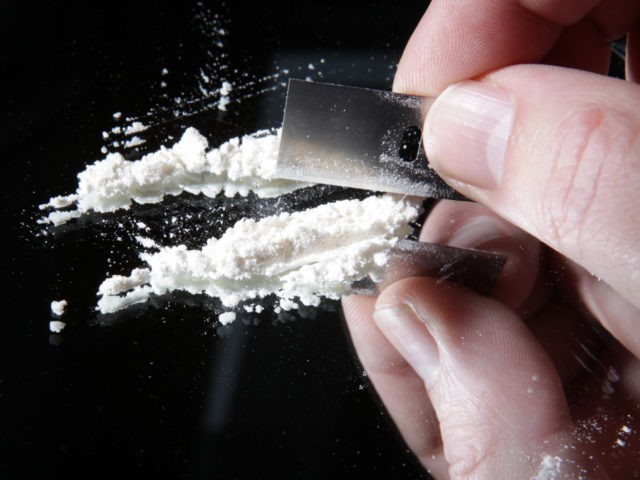Production of coca crops and potential production of cocaine in Colombia reached its highest recorded levels in two decades in 2021, according to a report published by the United Nations Office on Drugs and Crime’s (UNODC) Integrated Illicit Crop Monitoring System (SIMCI) this month.
The report comes at a time when left-leaning publications and the South American nation’s far-left president have presented arguments calling for the legalization of the highly addictive drug.
The U.N. report stated that coca cultivation reached 204,000 hectares in 2021, representing a 43-percent increase from 2020’s registered 143,000 hectares. The dramatic increase in coca cultivation in 2021 reversed the downward trend that Colombia had experienced during the previous three years under the conservative government of former President Iván Duque.
The 43-percent increase in coca cultivation during 2021 translates into a potential 14-percent increase of cocaine production in Colombia, as coca is used to manufacture the drug. Colombia, the world’s top cocaine producer, went from producing 1,228 tons of coca in 2020 to 1,400 tons in 2021. 62 percent of the world’s coca plants are produced in Colombia.
The report explained that optimization of coca fields – such as increasing the number of coca plants per hectare and the replacement of plants with more productive varieties – refinements in cocaine production techniques, and a increased global demand for the drug were some of the factors that influenced the historic increase in the productivity of both coca plants and potential cocaine production experienced in Colombia during 2021.
The worsening of socio-economic conditions caused by the response to the Chinese coronavirus pandemic was reportedly another influencing factor that prompted the dramatic spike in coca cultivation.
“In coca hotspots, there is a greater flow of financial resources that stimulates trade and allows access to goods and services that would not have been available without the illegal activity,” the report stated. Among the overtly licit operations affected by such activity listed in the report were “a wide variety of clothing and beauty stores, restaurants, pharmacies and supermarkets, meatshops where you can find everything from groceries to household appliances, as well bars and prostitutes,” according to an unnamed coca farmer source.
The U.N. report’s results directly contradict a report published by the Biden administration in July, which states that potential cocaine production in Colombia had decreased from 994 tons in 2020 to 972 tons in 2021.
The report debuted one month after Gustavo Petro, Colombia’s recently elected far-left president, presented his arguments for the defense of the growth and cultivation of coca plants during his first U.N. General Assembly speech, in which he once again declared carbon and oil to be more poisonous to mankind than cocaine.
“The opinion of [those in] power has commanded that cocaine is poison and must be persecuted,” Petro said, “even if it only causes minimal deaths by overdose, and more by the mixtures created as a result of its clandestine state. But, instead, coal and oil must be protected, even if their use can extinguish all mankind.”
Other members of Colombia’s government have openly called for the legalization of cocaine in the South American country.
In July, a group of Colombian lawmakers expressed their support for the decriminalization of drug use — including cocaine — through a letter. The missive was spearheaded by Gustavo Bolívar, who recently announced his resignation from Congress.
Luis Carlos Reyes, Colombia’s new head of the tax authority, has openly called for the legalization of cocaine. His endorsement for the legalization of cocaine is based on comments made by Petro pertaining to an article published by the left-wing magazine the Economist on October 12 titled “Joe Biden Is Too Timid. It Is Time to Legalise Cocaine.”
Despite being illegal, cocaine has found a longstanding allure in New York, where drug delivery services have become proliferant. Cocaine dealers have begun distributing fentanyl-laced cocaine, causing an upsurge in cocaine-related deaths, with 81 percent of the registered 980 cocaine deaths in 2020 having involved cocaine tainted with fentanyl.
Christian K. Caruzo is a Venezuelan writer and documents life under socialism. You can follow him on Twitter here.

COMMENTS
Please let us know if you're having issues with commenting.